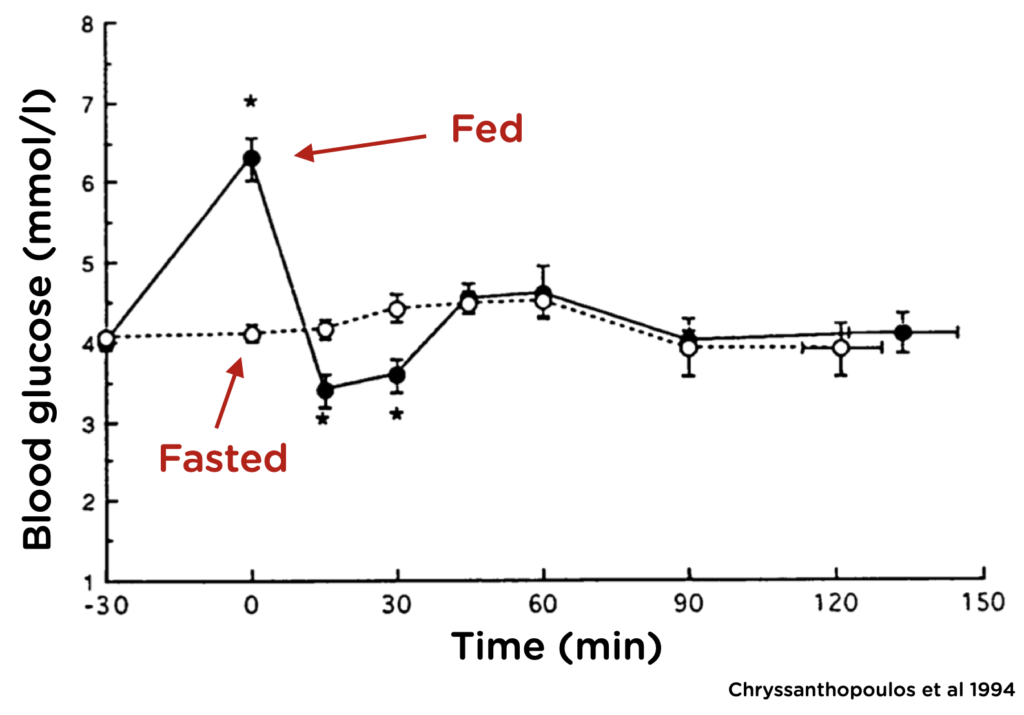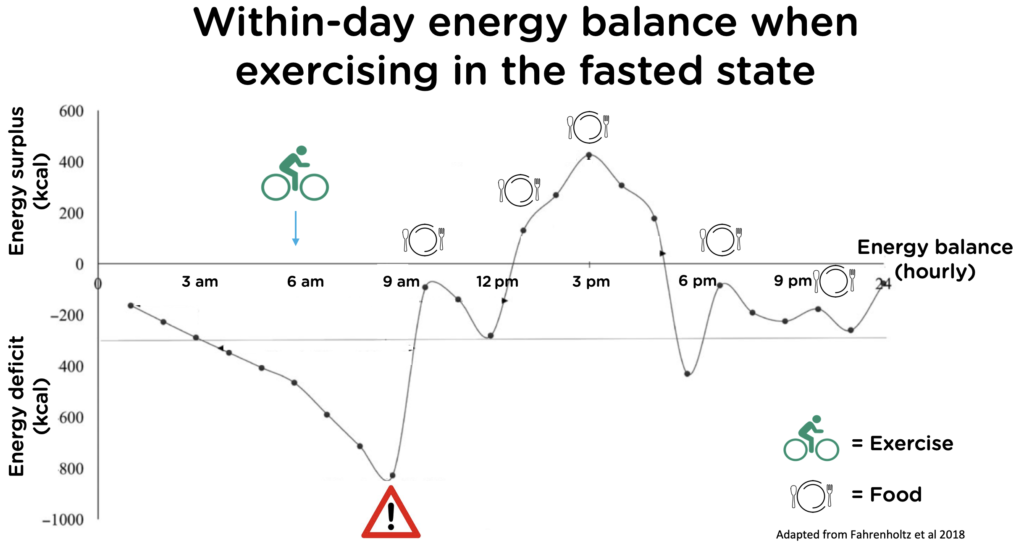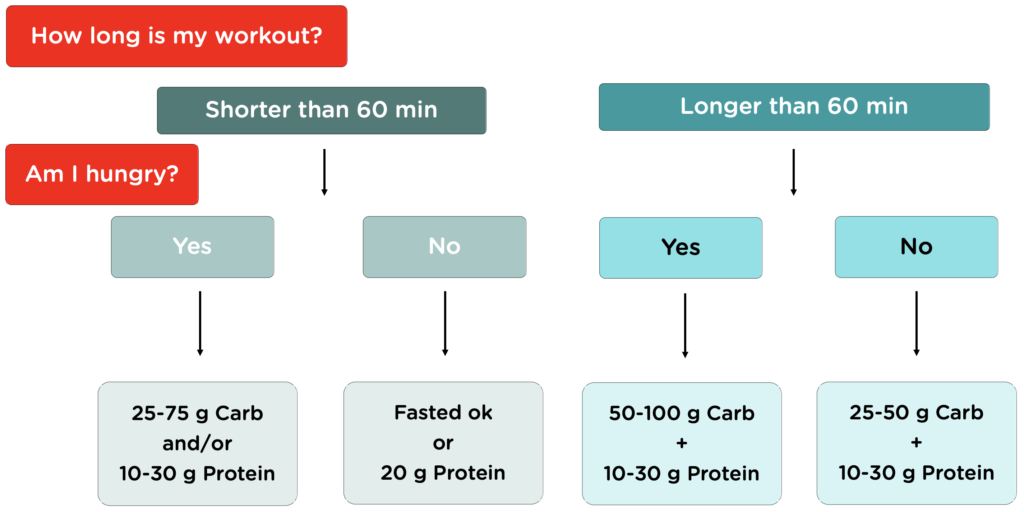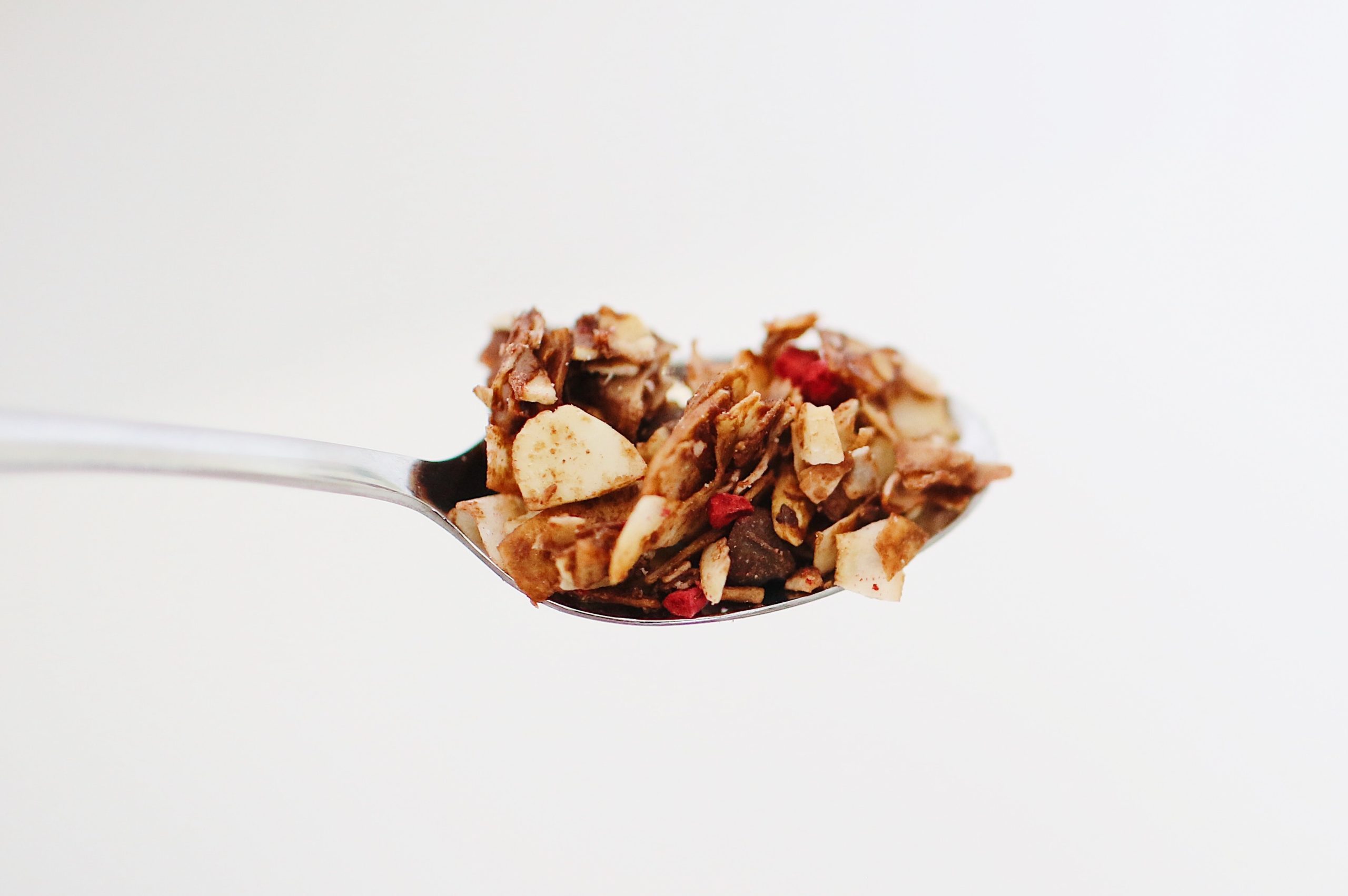To eat or not to eat, before exercise?
Why do some people say you should always eat before exercise, yet others say it’s better to train in the fasted state?
Both ideas might be right – depending on the context. This post will take a look at some of the arguments for and against eating before exercise and offer some guidelines to help you decide what is best for you.
I. You MUST eat before exercise
1. You will perform better if you’ve eaten
3. You will break down your muscle
4. You will get too hungry and/or run out of energy
5. You will create too big of a calorie deficit
II. You SHOULD NOT eat before exercise
III. How to decide what is right for you
You MUST eat before exercise!
If you are someone who exercises regularly, chances are that at some point you’ve been told how important it is to eat before your workout. If you don’t, you will breakdown your muscle, run out of gas, and perhaps shrivel up on the pavement. Okay maybe people don’t take it quite that far, but let’s look at a few of the reasons why people may feel this way…
You will perform better if you’ve eaten
Yes and no. The best evidence we have (from a meta-analysis of 46 different studies) suggests it may depend on the length of exercise. If your workout is less than 1 h in duration, it probably doesn’t matter for performance if you eat or not. But if your workout is longer than 1 h, you will probably perform better if you have eaten something beforehand.
You will keep your blood sugar more stable
Yes and no. It’s actually less stable after a meal, although that’s not necessarily a bad thing. Your blood sugar will be higher after a meal, and then gradually come down during exercise.

In the fasted state your blood sugar will actually stay quite stable, but depending on the exercise intensity, may eventually start to drop down a bit below baseline. In the big picture, if your workout is less than an hour or so, you probably don’t need to worry about it.
You will break down your muscle
No. Nearly all of the energy we use during exercise comes from fat and carbohydrate. It’s also important to remember that our muscle glycogen (the carb stores in our muscle) does not get depleted overnight, so if you go to bed with gas in the tank, that gas will still be there for your morning workout. However, if you are exercising in the fasted state it becomes more important to eat after exercise, to allow your body to properly recover and build muscle!
You will get too hungry and/or run out of energy
Some people might get hungry, but for others it’s no problem at all. As far as running out of energy, you should be fine if your workout is around an hour or less. Another option is to start out in the fasted state, and then have some sports drink or a gel in the middle of the workout when you need a boost.
You will create too big of a calorie deficit
Although this is probably the least common reason people might give, it might actually be the most relevant reason for the hard-training athlete to avoid fasted training. Spending too much time in a negative energy balance can lead to hormonal and immune dysfunction. Let’s take a closer look at this…
Although many people think that daily calorie balance is what matters most, more and more research has been showing that the distribution of calories within the day actually matters a lot too.
This picture shows how you can accrue a large energy deficit when you work out before breakfast. The horizontal line represents perfect energy balance; you’re matching your food intake to your calorie expenditure throughout the day. Eating puts you into a surplus, which gradually reduces until you eat again.

The dotted line shows the ups and downs throughout the day. When you wake up in the morning, you are already in a small energy deficit because you haven’t eaten since the previous evening. Now let’s say you do a workout around 6 am, without eating anything. You could easily burn 400-1200 kcal during a 1 h workout. Even if you eat a large breakfast afterwards (from my experience most people don’t eat nearly enough), you could still be in a calorie deficit until lunch time.
Does this matter if I end up in a calorie balance at the end of the day?
In a word, yes. Larger within-day energy deficiencies have been associated with hormonal dysfunction and even a reduced metabolic rate in both male and female endurance athletes. While deficits are not inherently bad, we just want to avoid spending too much time in too large of a deficit.
You SHOULD NOT eat before exercise!
Now let’s look at some of the reasons why people might think it’s actually better to exercise without eating. There are a lot of open questions here. Luckily, my current PhD research is trying to shed some light on them!
Burn more fat
Yes, it is true that you will generally burn more fat (and less carbohydrate) when you are exercising in the fasted state compared to when you exercise after breakfast. But there are a few major caveats to this.
1. This doesn’t necessarily mean that you will lose more body fat over time
2. This doesn’t necessarily mean that you will be better at burning fat during a race (when you’re not fasting)
3. If you consume protein (without carbs) for breakfast, i.e. protein shake, you will burn the same amount of fat during exercise as if you were fasting.
Get more out of training
Many people think that exercising in the fasted state will give your body a “better” workout than if you’ve eaten. The thing that gets me so excited about my current research is:
There has yet to be any research in trained athletes performing steady-state endurance training (i.e. more than a single session) in the fasted state!
So, we really just don’t know if it’s helpful. The research in untrained people suggests there may be some additional benefit from fasted training, but there are a number of studies also showing it doesn’t matter.
It looks like fasted training might be better when someone is eating too many calories overall or eating unrealistically large meals (i.e. 150 g carbohydrate) right before workouts. There is one study in athletes that looked at sprint interval training (4-7 x 30-second intervals, 3 times per week for four weeks) with unclear results.
Convenience and preference
There are several other reasons people train in the fasted state, generally related to convenience (it’s easier to wake up and train without wasting time eating), preference (just don’t want to eat), and gut comfort (don’t like training with a full stomach). There isn’t much to add here, you have to consider what works for you and your schedule.
To eat or not to eat?
I can’t tell you what you should do, but I can offer a framework for thinking about it.
First, think about how long your workout is going to be. Then, decide what to eat based on how hungry you are. I used to also suggest basing your decision around the exercise intensity, but that probably doesn’t matter nearly as much as the length of the workout does.
If you’re hungry but want the additional fat burning benefit of a fasted workout, remember you can have a scoop of protein powder and still burn the same amount of fat as if you were fasted.

While there are still a lot of unanswered questions surrounding this topic, my research will hope to provide some clarity about the best way to eat before your workouts. I will certainly keep you updated via posts like these.
The best solution is probably to eat before some workouts but not others, taking a “best of both worlds” approach.
When I work with athletes, I create a weekly fueling guide, that lays out exactly which meals throughout the week should be high in carbs, which should be low in carbs, and which workouts should be fasted.
Would you like to have the exact template I use to create fueling plans for athletes that show you HOW MANY CARBS TO EAT around training?
Click here and get free access to an exclusive video showing you EXACTLY how to create your own weekly fueling plan that balances your carb intake to get the most out of each training session.
